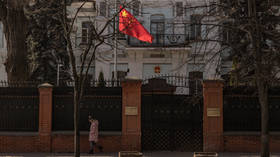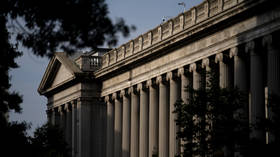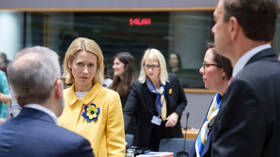Ukraine forced to close controversial ‘war sponsors’ blacklist
Ukraine has decided to abandon its list of ‘international sponsors of war’ following complaints from other countries.
Ukraine’s National Agency on Corruption Prevention has hosted a website listing companies that continue to do business in Russia or “indirectly assist in or contribute to Russia’s war efforts.” The list includes major corporations such as PepsiCo, P&G, Yves Rocher, Unilever, Metro, Nestle, Auchan, and Xiaomi.
The project was part of Kiev’s strategy to pressure companies into cutting ties with Moscow in response to the conflict with Russia.
The Ukrainian government announced on Tuesday, however, that those wishing to view the list will be redirected to the more neutrally named State Register of Sanctions curated by Ukraine’s National Defense and Security Council. The decision was made after a meeting attended by diplomats from more than ten countries, including the US, China, Canada, Britain, France, Germany, Italy, and Japan, as well as representatives from the EU.
According to a statement on the government’s website, many of Ukraine’s partners raised concerns about “the lack of legal basis for the existence of the ‘international sponsors of war’ list.” Kiev had to consider “the negative impact of this list on the adoption of important decisions to stop the Russian aggression,” the statement read.
Ukraine’s Justice Ministry ultimately agreed that it was “unacceptable to disseminate such information in the state’s name without resolving the legal issues.”
Austria had refused to back the 12th round of EU sanctions against Russia, demanding that Kiev remove the Vienna-based Raiffeisen Bank from the blacklist. Ukraine eventually conceded, paving the way for Austria to give the green light to the sanctions in December 2023.
Last month, Beijing requested that Kiev remove its companies from the list as well. “China firmly opposes the inclusion of Chinese enterprises in the relevant list and demands that Ukraine immediately correct its mistakes and eliminate negative impacts,” a Foreign Ministry spokesperson told Reuters.














